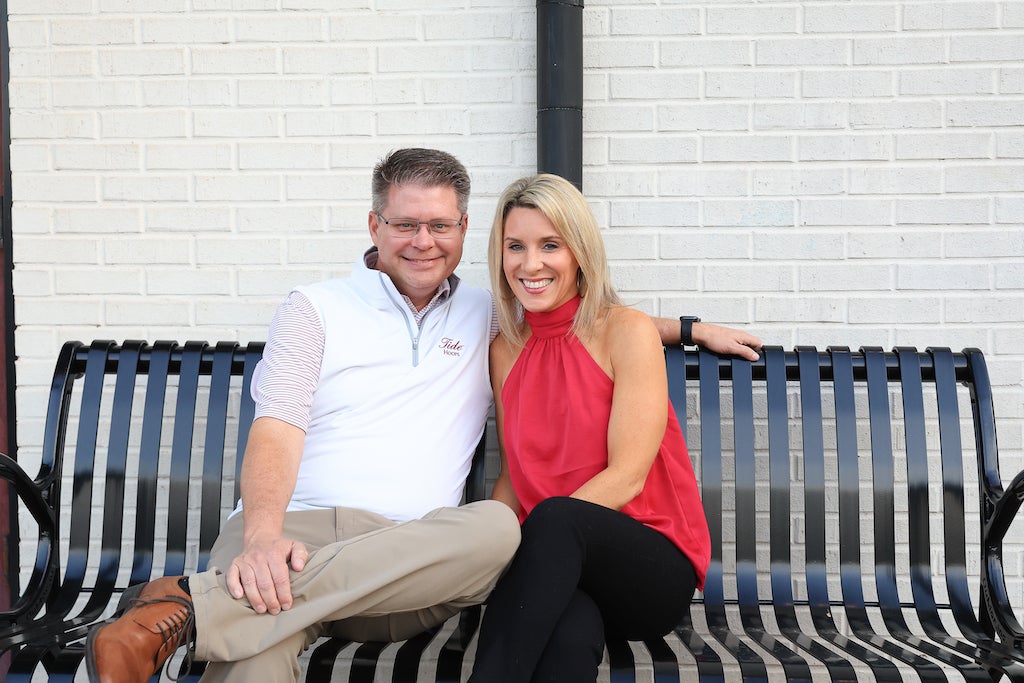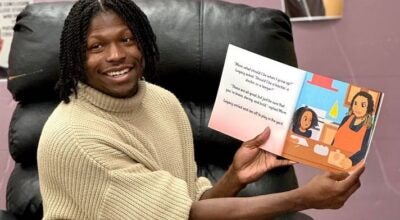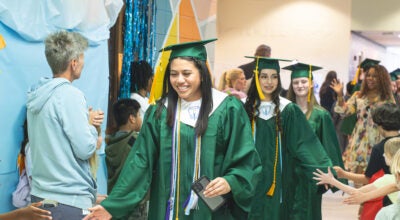A voice that wouldn’t die: Alabama broadcaster Chris Stewart shares how he overcame multiple health scares to do what he loves
Published 5:22 pm Monday, March 13, 2023
|
Getting your Trinity Audio player ready...
|
Written by Alec Etheredge
Laying in a hospital bed, inhaling deeply through his oxygen mask, a nurse helps him lift his arm in the air on Sept. 30, 2019, just days after his wife was calling family to let them know he may not survive.
For Chris Stewart, it was the third time in two years battling for his life after suffering a stroke from two blood clots a little more than a year earlier and having major heart bypass surgery a month earlier.
This time around, however, the Hoover resident and play-by-play broadcaster best known for working with the University of Alabama athletics was waking up from a coma and in for his toughest battle yet.
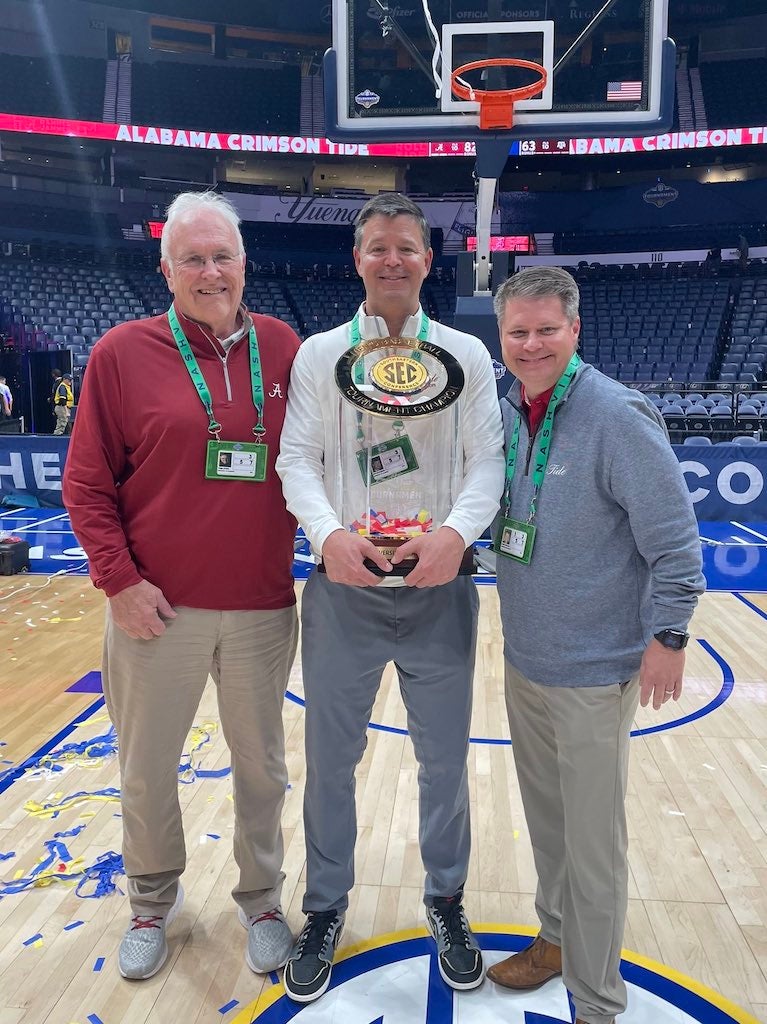
A voice that wouldn’t die
In his home following a church service in late August, 2019, Chris was saying by to guests less than a week after his bypass surgery.
“When the last visitor left the house on Wednesday and the door shut, I have no memory of the next month to this day,” he said.
Rushed to the hospital, doctors determined Chris was suffering from pneumonia, sepsis, MRSA and rhabdomyolysis resulting in the shut down of virtually every major organ due to an infection from the surgery.
He was put into a coma and on a ventilator, and it was unclear if he would survive.
“It was touch and go for a few days,” wife Christy Stewart said. “I’m trying not to let the kids see how serious it was. That first weekend, he was. That first weekend, he was having trouble breathing. Doctors said we need to paralyze him, incubate him. He wasn’t making the turn they needed him to make.”
It ended up being determined he had staff in his lungs and his blood. With it being unclear if Chris would survive, Christy started calling family and friends to tell them they needed to prepare to tell him goodbye.
At 35 years old with an 18-year-old son, a 14-year-old son and an 18-year-old step daughter at the time, she was faced with the prospect of being a widow.
I was obviously very concerned. It was a lot. Being worried that something else was going to happen. I wanted someone with him at all times. I had friends there while I was at work or doing things to help us out. I wanted somebody there.
“The first few days, they didn’t know what was going on,” Christy said. “I was obviously very concerned. It was a lot. But, a few days later, they were able to get him the right antibiotics and he started to make the turn.”
After a critical 3-4 days, Chris’ health improved and he was eventually woken from his coma and his path to recovery began.
Fast forward to Sept. 30 in his hospital bed and he is working with the therapists on therapy.
After lifting his arm once, he couldn’t do it again. Later that day, he did it three times. The mental battle, however, was tough to overcome.
“He didn’t want to eat or do the therapy,” Christy said. “I was like, ‘Look at what all you have to live for, you have to want to get better.’ They looked at a nursing home because he wasn’t working and thought he would be that way forever.”
That all changed one day when Chris’ son Hudson came to the hospital for a visit. That was the motivation he needed.
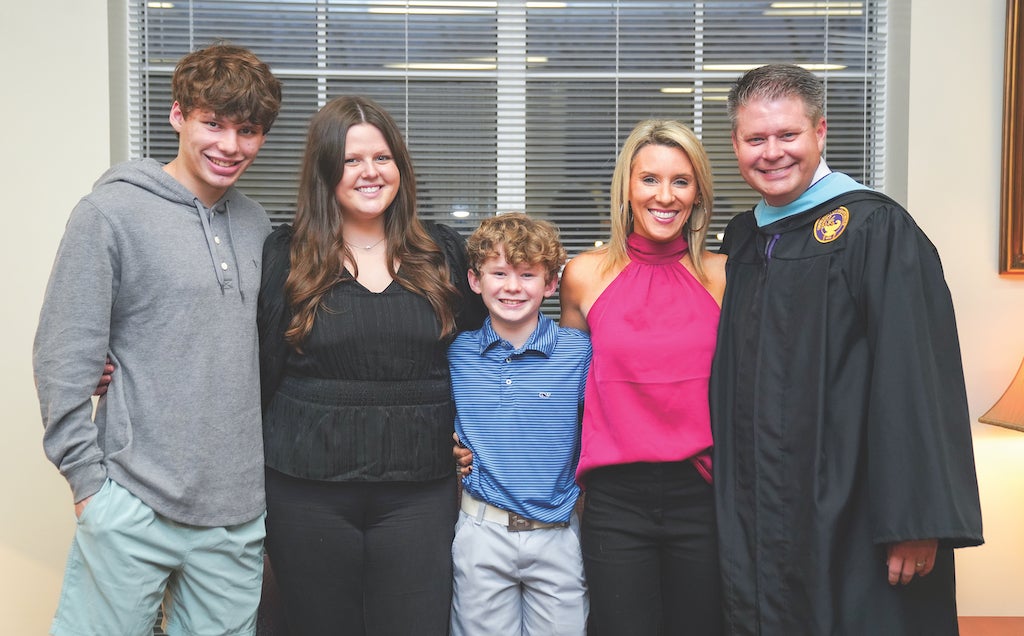
He slowly started to progress and was able to walk up and down the hallway with assistance from the nurses.
Eventually, he fought all the way back, and just before Thanksgiving, he returned home with his family on Nov. 27, 2019.
“It was all God and people’s faith in God,” Chris said. “I never should have survived the stroke and then the bypass and infection, let alone to be where I am three years later. The only explanation is God showed me favor for whatever reason.”
Chris’ fight, however, started well before that on April 16, 2018.
April 16, 2018
Two weeks ahead of his 48th birthday, Chris went to bed feeling completely normal only to wake up 12 hours later with his wife Christy standing over him at Brookwood hospital telling him he had a stroke.
“I just looked at her and said, ‘No I didn’t.’” Chris recalled. “She said, ‘Yes, you did.’”
It took a while to determine that Chris had two blood clots on his brain.
“I was well outside of the window for someone surviving a stroke or even having minimal effects,” he said.
He was quickly taken to surgery, where he faced his first of three life-threatening problems in a year-and-a-half span.
On the table of Dr. Jitendra Sharma, the surgery was as challenging as expected, but a miraculous turn occurred.
“Dr. Sharma told me he cleared the blood clots on what he says was his last attempt in good conscious,” Chris said. “That’s how close I was to death.”
After, the only side effect he faced was a droop in his left eye, which caused blurred vision. Chris wore an eye patch for the next 11 months to offset that and, was grateful that was his only problem.
“An eye specialist told me it would be two-and-a-half or three years before the eye muscle would return to full strength, if ever, but I needed to pray for the fact that it may never get better because that was a strong likelihood,” Chris said.
He went through the next basketball season wearing tape over his glasses. Then, 11 months after the stroke, the doctor at Callahan Eye examined him and said, ‘You can peel the tape off of your glasses. You don’t need them anymore. You are healed.’”
Five months later, he ran into Dr. Sharma at a social gathering.
“You look great,” Sharma told Chris upon seeing him.
“I feel great,” Chris responded.
But he also shared with him that he felt a tingling sensation and tightness in his left arms at times.
After scheduling an appointment to be seen by a cardiologist, it was determined he had a widow maker with a 95 percent blockage to his heart.
“If he doesn’t tell me that and tell me to go get it checked out, I probably die of a massive heart attack,” Chris said.
He had surgery and was back home later that same week, before the infection set in that next Sunday.
Yet again, however, he persevered.
After all of that—facing death three separate times—Chris is back to doing what he loves as the voice of Alabama basketball, baseball and now football, while his good friend Eli Gold faces his own health battle.
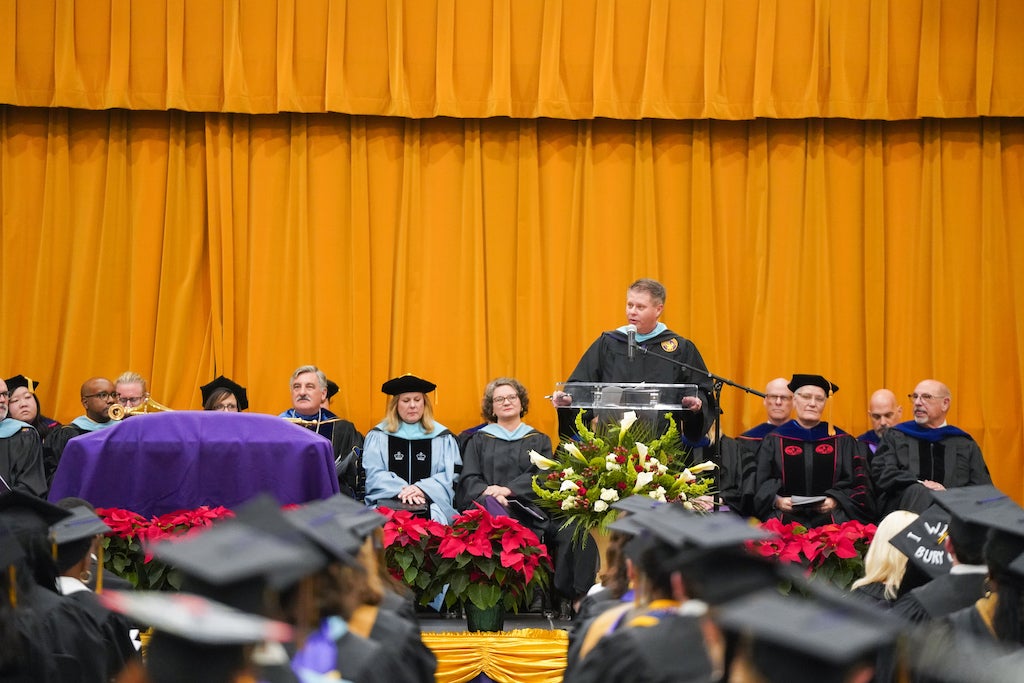
Taking flight
As a student at the University of Montevallo, Chris was a man of many hats. He worked at WBYE radio station in Calera, wrote for the university’s newspaper and was the sports lead for the school’s TV station.
That’s where his dreams took flight.
“The biggest thing I learned at Montevallo was I knew that everything I was doing there is exactly what I wanted to do for a living,” he said. “I thought when I was at Montevallo, the coolest thing in the world to do would be to have success, then go back to Montevallo, move WBY radio in Calera, get students interning there, basically doing what I was doing in college as an adult. I think that was a really cool dream and aspiration, but I think it was an example where I don’t know that I dreamed big enough. I didn’t see much going far beyond those borders.”
Of course, he had dreams of ESPN as many young people in sports journalism do, but he had no real plan on where he was going, just aspirations.
Then, the dominoes seemed to fall into place.
“If I ever write a book, it will have something to do with dominoes,” Chris said. “My grandfather would play dominoes, and I never knew how it worked. When I went, I’d play with the dominoes and stack them up, line them up and see how far they could go before stopping. I think life is a lot like that. One opportunity becomes the next and the next and the next.”
And just like that, they started falling into place for him.
His time at Montevallo gave him the skills and experience necessary to get his start in sports broadcasting because he was able to broadcast more than 100 games between campus TV and WBYE before even graduating.
“I had a better resume than a lot of others because of that on-air work before internet was a thing,” he said. “We were really fortunate to have the outlet we did.”
Chris got his first job working at a local radio station in Warrior after graduating, and while it was short lived, it continued assuring him it was the right path.
He then got a job at a local newspaper answering phones. After a few months the sports editor became the editor, opening up the possibility for Chris to tackle the sports editor role.
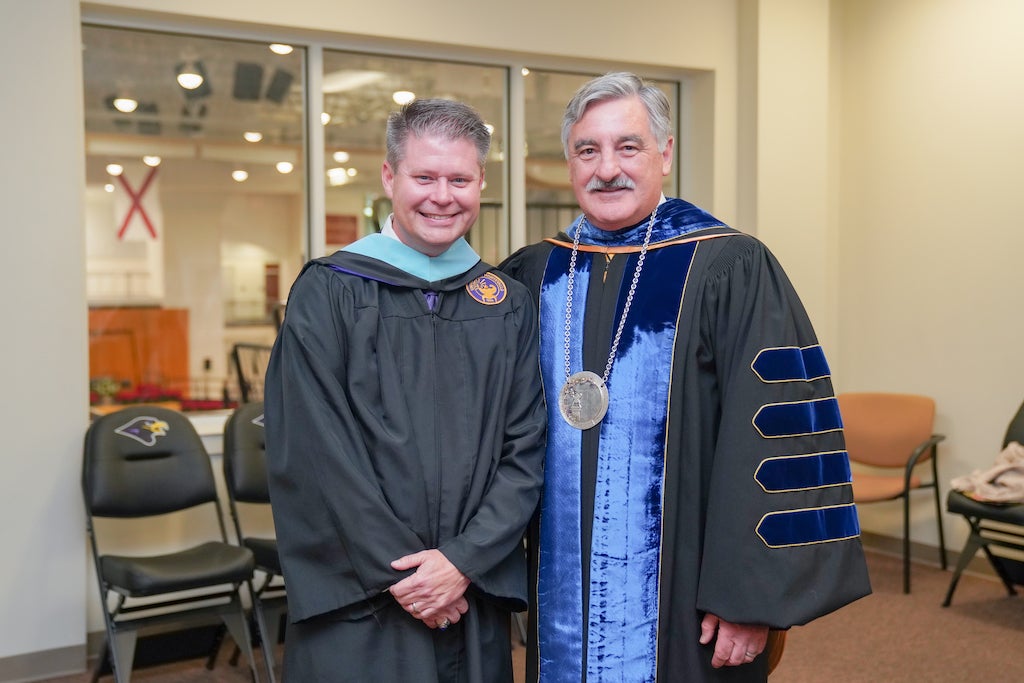
Next thing he new, he was also working with a local radio station and helping broadcast local games on the Alabama Cable Network.
“That brought it full circle from what I said what I wanted to do at Montevallo where I was sports editor at the paper, sports lead at the TV station and sports lead at the local radio station. I wanted to do all of that and get paid for it. Now, I was.”
Then, the next dominoe fell into place when he ran into then Birmingham-Southern College basketball coach Duane Reboul.
“I went to the Montevallo/Birmingham-Southern game as an alum and fan,” Chris said. “I ran into coach Reboul in the hallway. He told me he saw the work I was doing with ACN and that he was impressed.”
A month later, Reboul called Chris and offered him a chance to cover the team’s NAIA tournament as the radio play-by-play broadcaster.
Chris swiftly jumped on board and did the job for the 1995 tournament in which the team won five games and a national championship.
That started an eight-year run broadcasting their games.
Also working with UAB at times for their broadcasts, becoming the first sideline reporter the university ever had for football, people in Tuscaloosa started to take notice.
In 2002, a dream he never saw coming took him on an adventure that has now lasted 21 years.
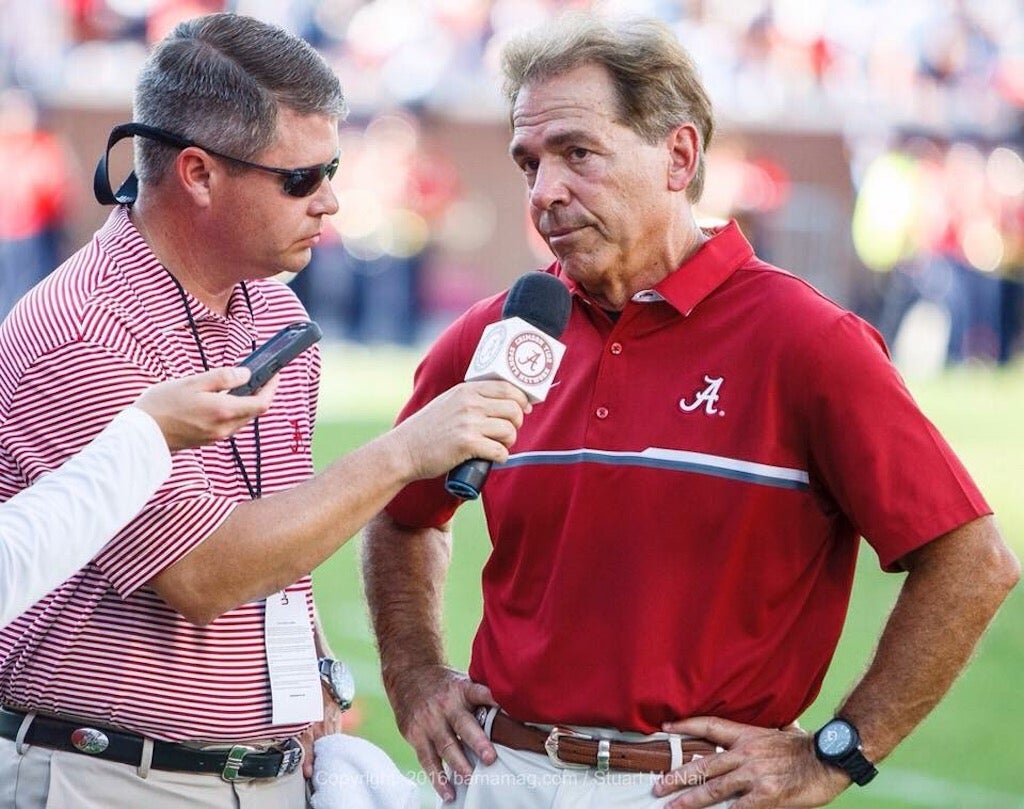
Riding the wave
Sitting courtside, the lights shone down brightly on him inside one of the most historic arenas in the country. Chris looked out in front of him and couldn’t believe his eyes as he prepared to make is debut to calling Alabama basketball games on Nov. 14, 2002.
It was preseason No. 8 Alabama against preseason No. 3 Oklahoma inside Madison Square Garden in New York City.
“I’m from Fairfield,” Chris said with a laugh. “I had never been to New York in my life. November of 2002, I’m sitting three seats down from Dick Vitale, center court at world’s most famous arena, and I’m the play-by-play person for Alabama basketball. It was surreal then, and it’s surreal now going into my 21st season.”
Thus began Chris living out a dream he had since he was a 10-year-old boy listening to John Forney as the voice of the Alabama Crimson Tide.
For the last 20-plus years, he has been the voice of Alabama basketball and baseball.
But recently, that dream went a step further when his good friend and co-worker Eli Gold was forced to sit out broadcasting during the 2022 football season.
With Gold sidelined to focus on his own health, Chris, after fighting for his life, was now the voice of Alabama football.
“It’s really special,” Chris said. “I hate the circumstances because it means that a friend has had some struggles. I don’t wish that on anybody, especially when you’ve shared similar experiences. At the same time, to be an Alabama fan my entire life and realize since 1953, there have only been five people do this, and albeit on an abbreviated time and in an interim role, I’m one of the five. That’s pretty cool.”
Chris did say just as Gold, Roger Hoover, Jim Dunaway and others were able to fill in while he was battling his health concerns, he is happy to help out his good friend while he is out.
“Having sat shoulder to shoulder with Eli the last three years and drawing on the things you saw him do, you know, I can’t call a game the way he does, and I never will, but there are ways he goes about his job that if I don’t do it the way he does, I want to at least live up to the standard he has set,” Chris said. “The thing I’ve really tried to do is know I can’t be him, but do my best so that Alabama fans don’t feel like they’re getting anything less than they’ve been accustomed to in the past. I don’t know that I’ve lived up to it, but I know I’ve done my best.”
Chris said as pressure-packed as the situation is to call games for one of the top college football programs of all-time and do so in place of Gold, the fact that he followed Gold 20 years ago in basketball and has been around the football program for many years has made it easier.
“When I first started, I had very little identity and background with the fan base,” Chris said. “That has changed. There is a lot more grace with me coming in than someone from the outside because there seems to be a comfort level with me, at least that’s what fans have expressed to me.”
He said that is on display everywhere he goes for speaking engagements, as fans come up to him and tell them they prayed continuously for him during his health battle—a reason he thinks he is still alive.
Now, he just enjoys the aspect of calling some of the best games in the country on a weekly basis and doesn’t sweat the nerves as much.
“It doesn’t matter where you are or where your broadcasting from, you want to call meaningful games,” Chris said. “Everybody’s mean something, but when you’re doing an Alabama game, you’re almost always doing a game that has national relevance. There is an intensity when you’re doing a game like that, and while we, as broadcasters, don’t have a role in the outcome, you want to capture it. There are no redoes. You get one shot at it. You better hope you get it right.”
Chris said the dream for him started at 10 years old in the back of the car listening to Forney call the 1980 Alabama-Mississippi State game.
“I was balling my eyes out because, holy cow, Alabama lost and to Mississippi State. That doesn’t happen,” he said. “I remember listening to John call that game and the descriptions he gave of what was unfolding.”
It wasn’t a fond memory from a win-loss perspective, but one that stuck with Chris several years later when getting to know Forney, who eventually listened to his demo tapes as a young professional hoping to get his start.
Then, one year at SEC Media Days in 1997, Chris saw Forney walking off and decided to run up to him and share some news.
“I told him I was going to be doing some work with UAB football during the fall by filling in for Gary Sanders during a couple of broadcasts,” Chris said. “John said, ‘Chris, I am so happy for you. I just hope I’m where I can hear you.’”
Less than five hours later, Forney died.
Chris, however, wanted to make sure to do his career and life justice, so he decided to write a column.
“I talked about him saying that he hoped he was where he could hear me,” Chris said. “I finished the column saying, ‘John, I hope you can hear me and I hope you liked what you hear.’ To go from that to being the guy who sits in his chair is really special.”
Now, Chris sits in that chair, having knocked on deaths door three separate times and been turned away, and his voice is louder and more proud than ever as the voice of the Alabama Crimson Tide.


